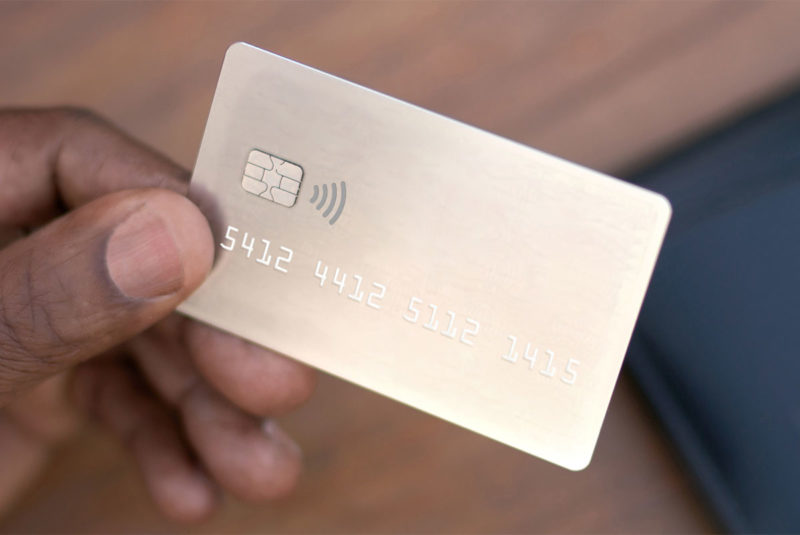Business credit is pretty much like personal credit, but for businesses.
If you understand how your personal credit reports and scores work, you’ll have a good idea of how business credit works too. But there are some important differences.
Business credit reports and scores are completely separate from personal reports and scores. However, lenders will typically check your personal credit alongside your business credit when you apply for business financing. This is especially true for small businesses.
Not all businesses have a credit history, just like not all people have a credit history. If a business hasn’t been around very long, isn’t listed in directories, or hasn’t established any trade lines like business credit cards, business loans, or vendor accounts, there might not be any information to show in a commercial report.
Plus, in some cases, you might need to open a business credit file yourself with the commercial credit bureaus.
Great business credit comes with a number of potential benefits, some of which could end up saving you a lot of money in the long run. You might enjoy:
- Better odds of approval for small business loans
- Higher loan amounts
- Access to business credit without a personal guarantee
- Lower rates on loans, credit cards, and insurance
- Landlords being more likely to lease property (like office space)
- Smaller deposit requirements on leases and new utilities
- Improved relationships with suppliers and merchants
- A better overall reputation and image for your company
- A valuable asset if you ever decide to sell your business
We’ll kick things off with a quick, actionable overview of how to build business credit below, in case you already have an idea of how it works.
If you’re after a more in-depth look, simply jump down to our explanation of business credit, and we’ll guide you through the intricacies from there.
At a Glance: How Do You Build Business Credit?
The credit-building process for businesses can be boiled down to nine relatively straightforward steps.
- Incorporate to make your business a separate legal entity
- List your business address and phone number in directories, so credit bureaus can find your company
- Get an Employer Identification Number (EIN) from the IRS
- Register with Dun & Bradstreet and get a D-U-N-S number
- Open a business checking or savings account with your EIN
- Check your business credit reports for accuracy
- Open a business credit card and use it responsibly
- Establish trade lines with vendors, suppliers, and lenders
- Monitor your credit reports
We explore each of these steps at length below, so go ahead and keep reading if you’d like a bit more detail.
What Is Business Credit?
A business credit report is a record of your company’s history managing credit such as loans, lines of credit, credit cards, and vendor accounts. Your business credit reports may also contain other information like the year your company was established and your business registration details.
You may have a business credit file without knowing it. Or you may not yet have a business credit file, even if you’ve had an established business for some time.
A business credit report includes detailed information, such as:
- Business profile (company name, address, owner(s), number of employees, etc.)
- Financial information (annual sales, financial statements, etc.)
- Historical business data (date established, etc.)
- Business registration information
- Trade lines
- Credit accounts
- Payment history and collections (if applicable)
- Overall credit utilization
- Public records (bankruptcies, liens, judgments, Uniform Commercial Code (UCC) filings, etc.)
- Business credit scores and risk factors that estimate the probability of late payments and business failure
Not all business activity is reported on business credit reports. Only some lenders and suppliers will report credit lines and trade lines to the business credit bureaus, where they will be added to a company’s commercial credit reports.
If a lender or vendor doesn’t report to the business credit bureaus, the account won’t help you establish business credit.
Check out some credit card issuers and business-to-business merchants that report activity to the business credit bureaus. You can also request that vendors you work with begin reporting data to the bureaus if they aren’t already.
If you haven’t yet established business credit, you’ll most likely be asked to personally guarantee any credit cards or loans you take out for your business. This might not be preferable if you’re trying to separate all business and personal financial activity. But it’s usually unavoidable until your business has a strong credit history of its own.
You can check if your business already has a credit file with any of the major business credit bureaus. Or you can check the credit reports of any other business you want to review. As a small business owner, it’s important to know where you stand.
Business credit is not covered under the Fair Credit Reporting Act (FCRA). As a result, business credit reports are not private. Anyone can view any business credit report, although there’s often a charge for this information.
Business credit bureaus
There are three major business credit bureaus:
Each of these companies collects data and produces its own credit reports. They also provide their own credit scores based on those reports.
Small Business Financial Exchange (SBFE) is another name you’ll often hear associated with these companies. SBFE is not a business credit bureau, but it does pass along data from lenders to four different business credit reporting agencies:
- Equifax® Business
- Experian™ Business
- Dun & Bradstreet
- LexisNexis Risk Solutions (not a credit bureau, but collects and reports business credit activity)
If a lender reports data to SBFE, you can usually expect that data to end up on the reports of the commercial credit reporting agencies listed above. You’ll find several credit card issuers that report business card activity to the SBFE below, like American Express and Capital One.
What Are Business Credit Scores?
Business credit scores are based on information from business credit reports. Each of the business credit bureaus will typically offer credit scores along with the reports they provide, depending on the product you buy.
You may see several different types of credit scores on a business credit report, including:
- Dun & Bradstreet PAYDEX or Equifax® Payment Index: On a scale of 1 – 100; Indicates how promptly a business has paid its recent bills. Late payments will lower this score. Paying early might score you some bonus points.
- Business creditworthiness, Credit Risk Score, or Delinquency Predictor Score: Scale varies by credit bureau; A bit like a personal credit score, it provides an estimate of the likelihood that the business will become severely delinquent on payments in the next 12 months.
- Business failure or Financial Stability Score: Scale varies by credit bureau; Estimates how likely a business is to fail or experience severe financial distress in the next 12 months.
The simplest (aka least expensive) credit reports may only include one credit score, like a payment index. More complex (and expensive) reports will usually include more scores.
Each of the credit bureaus has its own scoring systems, using different algorithms and presentation styles. Dun & Bradstreet may give your business creditworthiness on a scale of 101 – 670, while Equifax® may present the same kind of data in a range of 1 – 5 risk classes. Regardless, the scores you see will generally fall into the three categories above.
Business scores factor in a wide variety of data types to provide simple numbers that lenders and other companies can use to evaluate the risk of doing business with your company. These scores may consider information such as:
- Payment history
- Credit utilization and outstanding balances
- Trade lines, past and present
- Credit accounts, past and present
- Average age of accounts
- Net worth
- Business age
- Business type and industry risk
- Number of employees
- Public records like collections, bankruptcies, liens, and UCC filings
- Demographic data, including Standard Industrial Classification (SIC) codes
- Trends over time
On business credit reports you can sometimes click to find more details about each score, including the main factors affecting them.
How To Build Business Credit
There are two basic stages on the path to business credit:
- Establishing credit files at the business credit bureaus
- Building business credit by including trade lines and credit accounts in those files
If you’ve had a business for some time, you might already have credit files with the commercial credit bureaus. It’s easy to check to see if a report exists for your business (or any other business), although you’ll likely need to pay to see any details or credit scores.
| Credit Bureau | Check Business Credit Report | Minimum Price per Report |
| Equifax® | Online search form | $99.95 + $7.49 for scores |
| Experian™ | Online search form | $39.95 |
| Dun & Bradstreet | Online search form | $61.99 |
Take note that the minimum prices mentioned above will provide the simplest credit reports available from each bureau. If you’re investigating a business, these reports may not include the information you want.
Check out the other options provided to see which one would be right for you. The more you’re willing to pay, the more information and analysis you’ll get.
There are also some free services that will provide business credit data, although their reports may be pretty sparse. They usually won’t show the same scores you’ll find on reports from the three business credit bureaus.
In some cases, you may just get a free trial, although you can usually pay to get more detailed results.
Depending on what you’re looking for, you may be satisfied with one of these free services.
| Credit Reporting Service | Check Business Credit Report |
| Credit.net | Online search form |
| CreditSafe | Online search form |
| CreditSignal | Online search form |
| Nav | Online search form |
| Scorely | Online search form |
If you don’t yet have a credit file established, that’s OK — it’s a pretty simple process.
After completing all the following steps in Stage 1, it may take 30 – 60 days before your business credit reports are created or updated by the credit bureaus.
Stage 1: Establishing Business Credit Files
Each credit bureau has its own requirements for the creation of business credit files. If you have a business but aren’t seeing a credit report, you might be missing a few of these key ingredients.
Here are a few basic steps you should take that will apply to all the bureaus, and one for Dun & Bradstreet in particular.
1. Incorporate
It’s important to create a separate legal entity apart from your own personal credit.
Incorporating lets you establish a separate credit file under your business name.
You can choose a C corp, S corp, or limited liability company (LLC), for example. With sole proprietorships your personal and business credit are tied together, so you’ll need to switch from that if you want to establish a separate business credit history.
Incorporating is good for your business in other ways beyond just creating a business credit report. It will separate your personal finances, protect you from liability in some cases, make it easier to get business loans, and can affect how much you pay in taxes.
2. List your business address and phone number
You should list your business name and address in directories to make it easier for the credit bureaus to find your company. Be sure to include your business phone number.
This means adding the information to the Yellow Pages, as well as 411 and other local and online directories.
3. Obtain an Employer Identification Number (EIN) from the IRS
Having an Employer Identification Number will give your business certain privileges, like the ability to open business bank accounts.
You can apply for an EIN online for free through the IRS website.
A valid Taxpayer Identification Number (TIN) is required to apply for an EIN. Valid TINs include Social Security numbers, Individual Taxpayer Identification Numbers (ITINs), and EINs themselves.
4. Register with D&B and get a D-U-N-S Number
You can register your business with Dun and Bradstreet for free, simply by submitting an application. This will establish a basic business credit profile with D&B.
Click here to register your business with D&B and get a D-U-N-S number. It usually only takes one business day. You may find that you already have a D-U-N-S number if D&B happened to create one for you.
D-U-N-S stands for “Data Universal Numbering System.” It’s a global identification system created by Dun & Bradstreet and used to keep track of businesses of all kinds.
You don’t typically need to give out your D-U-N-S number to lenders or vendors. Your account information will be matched up by D&B using details like SSN or EIN, and then will be associated with your D-U-N-S number.
5. Open a business bank account
Open a business checking or savings account using your EIN. This will help keep your business and personal finances separate.
6. Check your business credit reports for accuracy
You may or may not have business credit reports yet.
If you do, you should check them to be sure there are no mistakes. If there are any errors, you should file a dispute or submit an update to remedy them. You can do this online.
| Credit Bureau | Update/Dispute Business Information |
| Equifax® Business | Online instructions |
| Experian™ Business | Online instructions |
| Dun & Bradstreet | Log in. From the iUpdate menu, select “Submit Financial Statement” or “Review/Dispute Payments.” Follow the instructions |
Stage 2: Building Business Credit
Now that you’ve done everything required to establish a credit file, your business will need to do something worth reporting to a commercial credit bureau. That could mean opening an account with a supplier or vendor or opening a business credit card.
1. Open a business credit card and use it responsibly
Open a business credit card using your business name and using your EIN instead of SSN, if possible. You can get just one card or several. Having more than one business credit card will add more accounts to your report, and make it easier to keep your credit utilization low.
You’ll probably need to personally guarantee business credit card accounts, especially if your business is relatively new. Well-established businesses may be able to get cards without personal guarantees.
Most business credit cards will report to at least one of the business credit bureaus, or to Small Business Financial Exchange. The way a particular card reports depends on the individual card issuer.
You can see how each issuer reports business card activity below.
In general, regular business card activity won’t show up on your personal credit reports. If you provided a personal guarantee and the account becomes delinquent or enters a negative status, however, the negative account may show up on personal reports. (This applies to most card issuers, but not in every case).
Note: Capital One and Discover small business credit cards generally show up on personal credit reports, even if they’re paid on time.
Aside from the two exceptions just mentioned, you can often use business cards to prevent credit card debt from showing up on your personal credit reports. This can prevent business credit card debt from increasing your credit utilization and bringing down your personal credit scores.
When it comes to using credit cards responsibly, business cards are just like personal cards. There are a few key points to remember:
- Understand the card terms: Take some time to read through your card’s details so you understand how the rewards, benefits, interest rates, and fees work.
- Don’t charge more than you can pay off: Spend within your means. A credit card is not free money.
- Always pay on time: Payment history is very important, and late payments will bring your credit scores down. Set up autopay to make sure you never miss a payment.
- Keep your utilization low: Your overall credit utilization should be kept as low as possible if you want the highest scores you can get.
- Don’t close accounts without a good reason: It’s generally better to leave credit cards open, unless you’re paying an annual fee for a card you don’t want, for example. This will help your credit utilization and average age of accounts.
Out of everything you can do with a credit card, paying on time is perhaps the most important. A history of late payments doesn’t mean you’ll be stuck with bad credit forever, but it’s one of the more difficult hurdles to overcome. It’s much easier to avoid them in the first place.
We recommend paying your statement balance in full each billing period, which will do three good things for you:
- Ensure that you pay on time
- Help keep your utilization low
- Prevent interest from accruing on your balance
With certain business scoring models, paying before the due date may result in higher credit scores.
To get yourself in the right mindset, imagine that you have a separate checking account that you’ll use to pay your credit card bill. Every time you make a credit card purchase, you could put the same amount of money in that second account.
Then, at the end of the billing period, you’ll have enough in that second account to completely pay off your credit card statement balance. This wouldn’t be very practical to actually do, but it should help you think about setting money aside for your bill.
Paying your statement balance in full each month will have a strong positive effect on your credit scores. It will also save you money, compared to a business that’s revolving a balance and accruing interest every month.
2. Establish trade lines with vendors, suppliers, and lenders
Some business-to-business merchants will report trade lines to the business credit bureaus. When you do business with these companies they’ll report the account and payment history, and that information will show up on your business credit reports.
Just like with credit cards, be sure to always pay your vendor accounts on time.
Ask the merchants you work with (or are planning to work with) whether or not they’ll report a line of credit to the business credit bureaus. If they don’t currently report, you can request that they start doing so.
We recommend looking for “net 30-day” vendors to work with. Net 30 refers to a payment system in which a business can make normal purchases on credit, with the full bill due in 30 days. (There are also net 15, net 60, and net 90 vendors. These can be just as good for building credit, but net 30 accounts are the most common).
Not all business suppliers, lenders, and net 30 vendors report trade lines and payment history to the commercial credit bureaus. The bureaus don’t publish official lists of reporting vendors, because that would skew customer behavior and reporting accuracy.
However, there’s a lot of anecdotal online evidence of companies that report to the business credit bureaus. Here’s a collection of some of these companies, including net 30 vendors, gas companies, and lenders (other than credit card issuers, which are covered below).
Remember that these aren’t official lists, and you should check with the company before assuming it will report your account. In some cases, you may need to meet certain requirements before a company will report, like a minimum purchase amount.
“Net Day” Companies
- Advance Auto Parts
- Amazon
- CleanItSupply
- Creative Analytics
- ePromos
- FedEx
- Gemplers
- Grainger
- HD Supply
- Home Depot
- Laughlin Associates
- Lowes
- Newegg Business
- Office Depot/Office Max
- Quill
- Seton
- Staples
- Strategic Network Solutions
- Uline
- UPS
- Wayfair
Gas Companies
Lenders and Financing Companies
3. Monitor your credit reports
After establishing a business credit file, adding some accounts to it, and managing those accounts well, you’ll be on your way to excellent business credit. But you can’t just assume everything will work out fine from here on out.
You should periodically monitor your business credit reports for accuracy, just like you should monitor your personal credit reports. Errors can appear on your reports at any time, so it can literally pay to keep tabs on your reports (an incorrect entry could mean higher interest rates!).
Here’s the credit bureau information you’ll need to check your reports and correct any mistakes.
| Credit Bureau | Check Business Credit Report | Update/Dispute Business Information |
| Equifax® Business | Online search form | Online instructions |
| Experian™ Business | Online search form | Online instructions |
| Dun & Bradstreet | Online search form | Log in. From the iUpdate menu, select “Review/Dispute Payments” and follow the instructions |
How Long Does It Take To Build Business Credit?
As with personal credit, there’s no clear timeline dictating how long you’ll have to spend building business credit before you actually have business credit scores.
It’s safe to assume you’ll have to spend several months building business credit at the very least. You won’t get a PAYDEX score, for example, until you’ve opened at least two business credit accounts or trade lines and made at least three payments.
Certain other factors may impact your ability to build business credit, too, such as your personal credit scores. The better your personal credit, the easier you’ll generally find it to be approved for business credit cards, which (in addition to trade lines and loans) are extremely useful for building business credit.
So, long story short, you won’t know how long it’s going to take you to build business credit until you actually do it. The sooner you start, the sooner you’ll get to where you want to be.
How Do You Build Business Credit With Bad Personal Credit (or No Credit)?
Got bad personal credit? Try a secured business credit card. They’re designed for individuals whose personal credit isn’t good enough to be approved for a better card. You’ll have to put down a refundable cash deposit, submit to a hard inquiry on your personal credit, and provide a personal guarantee to get one, but it’s worth a shot if you don’t have many other options.
You can also try opening trade lines with vendors. For those new to business credit, “trade line” is essentially a fancy term for “credit account.” Account requirements will vary between vendors, but you don’t always need great personal credit to open one.
Building business credit with no personal credit is a touch more difficult. In certain cases, you may still be able to qualify for a secured business credit card with no personal credit.
Aside from that, there are a few business credit cards available without personal guarantees or hard personal inquiries. But these are usually reserved for businesses who’ve been in business for several years and bring in hundreds of thousands of dollars a month (or more), so they’re not great for beginners.
Credit Card Issuer Business Reporting
Credit card issuers will report business credit card activity in the following ways.
In general, business cards in positive standing are reported to one or more business credit bureaus. (Discover and Capital One (for most cards) will report positive small business credit card activity to the personal credit bureaus as well.)
Negative accounts will usually be reported to the personal consumer bureaus and may be reported to the business credit bureaus as well. (Some issuers report a bit differently.)
A negative account is usually defined as an account that is delinquent, which means the minimum payment was not made by the due date. But different issuers may have different standards for judging an account to be delinquent. Some may wait until the account is 60 days past due, for example, while others may report it sooner.
Take note: The following data about where credit card issuers report business card activity is accurate to the best of our knowledge, based on information provided by the card issuers and our own research.
Card issuers do not always publicly disclose the bureaus to which they report card activity, and issuer reporting policies can change. Your experiences with business card reporting may differ from what we list below.
Also, note that accounts reported to Small Business Financial Exchange (SBFE) may be included on other commercial credit reports because of how the SBFE operates.
| Issuer | Positive Accounts Reported | Negative Accounts Reported |
| American Express | Small Business Financial Exchange | Dun & BradstreetConsumer credit bureaus |
| Bank of America | Small Business Financial Exchange | Consumer credit bureaus |
| Barclays | None | Consumer credit bureaus |
| Capital One* | Dun & BradstreetExperian BusinessSmall Business Financial ExchangeConsumer credit bureaus (most cards; personal credit impact) | Consumer credit bureaus |
| Chase | Dun & BradstreetEquifax BusinessExperian BusinessSmall Business Financial Exchange | Consumer credit bureaus |
| Citi | Dun & BradstreetEquifax BusinessExperian BusinessSmall Business Financial Exchange | Dun & Bradstreet |
| Discover | Equifax BusinessExperian BusinessDun & BradstreetConsumer credit bureaus (personal credit impact) | Consumer credit bureaus |
| USAA | N/A (does not issue business cards) | N/A |
| U.S. Bank** | Equifax BusinessDun & Bradstreet | Consumer credit bureaus |
| Wells Fargo | Small Business Financial Exchange | Consumer credit bureaus |
*Most Capital One business cards will report normal activity to the personal credit bureaus. However, starting 10/20/20 for new cardholders, the Capital One Spark Cash for Business (Review) will not report any activity to the personal credit bureaus, as long as the account remains in good standing.
**We’re not 100% sure about the data for U.S. Bank. Card issuers sometimes have trouble telling us where card activity is reported, as reps aren’t usually trained for questions like that.
There are many business credit cards available today, and the right card for you will depend on your particular business needs.
- Improve bad credit: Perhaps you have poor credit and you need a card that’s relatively easy to qualify for.
- Earn no-hassle rewards: Maybe you just want an inexpensive card with no annual fee that still earns rewards.
- Travel in style: You could be looking for some premium travel perks and a big signup bonus.
- Don’t pay extra: Be sure to get a business card with no foreign transaction fees if you’re planning any trips abroad, or if your business makes purchases in foreign currency.
- Get more of what you love: If you have any favorite airlines or hotels, check to see if they have any business card offers.
Wrapping Up
Building strong business credit can take some time and dedication. But the general steps are pretty easy, as long as you understand what you’re doing.
- Understand the basics of business credit
- Establish and register your business
- Get business credit cards and open trade lines with vendors
- Pay your bills on time and don’t max out your credit cards
- Monitor your business credit reports to see your progress and check for errors
The Short Version
- Great business credit scores can make it easier to access financing options from loans to credit cards and beyond — with terms and features that meet your needs
- If you understand how your personal credit reports and scores work, you’ll have a good idea of how business credit works, too
- Start building your business credit by establishing a business credit file, then opening trade lines or a business credit card




